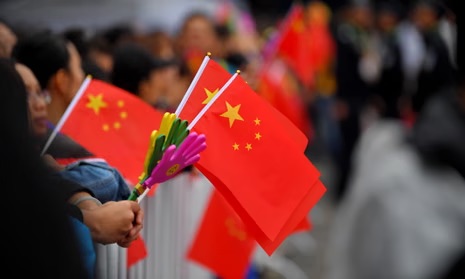By Sun Ru
When the Chinese Communist Party announced the Eight-Point Decision on Improving Party and Government Conduct back in 2012, few outside observers grasped its deeper implications. To many, the rules sounded like bureaucratic housekeeping: cut the red tape, limit banquets, reduce empty speeches, and curb wasteful perks. They seemed like minor adjustments to a political culture long associated with hierarchy and privilege. Yet more than a decade later, these “Eight Rules” have become one of the most enduring reforms in modern Chinese governance — a cultural shift that is reshaping not only how the Party governs itself but also how China projects its image abroad.
The Eight Rules were deceptively simple: streamline meetings, reduce motorcades, avoid pomp, practise thrift, write shorter documents, strengthen grassroots ties, and promote accountability. But behind this modest checklist lay a radical political message: discipline is power. By enforcing restraint among officials, President Xi Jinping sent a clear signal that governance must return to service, not self-indulgence. It was an attempt to rein in a bureaucracy at risk of losing the trust of its people, and to remind cadres that legitimacy is built not on slogans but on conduct.
googletag.cmd.push(function() { googletag.display(‘div-gpt-ad-1718806029429-0’); });
Domestically, the impact has been profound. Lavish banquets, once symbolic of privilege, have been replaced with modest meals. Endless, jargon-laden reports have given way — at least in part — to more concise communication. Leaders are expected to travel with fewer entourages, hold fewer ceremonies, and spend more time listening to ordinary citizens. The use of public funds on luxury cars, gifts, and receptions was drastically reduced. For many Chinese people, this change created a tangible sense of closeness between rulers and the ruled, and helped to restore public confidence in the party during a period of cynicism about corruption. Even small gestures — an official eating a simple lunch in a canteen or walking without a motorcade — carried symbolic weight, showing that authority could also mean restraint.
Of course, these reforms did not eliminate corruption or excess entirely, but they created a political culture where indulgence was no longer flaunted openly. The “Eight Rules spirit,” as it came to be called in China, became shorthand for a governing style that emphasized modesty and discipline. It resonated with ordinary citizens, who for decades had viewed bureaucracy as distant and wasteful. By cutting down the distance between officials and the public, the Eight Rules helped rebuild a measure of trust at a time when scandals had eroded it.
But the global significance of the Eight Rules goes beyond China’s internal housekeeping. In a world weary of bloated bureaucracies and disconnected elites, the rules represent a model of political self-discipline that has resonance far outside China. Citizens everywhere have grown frustrated with leaders who seem more concerned with privileges than with service. From parliaments mired in perks to presidents shielded by motorcades, the spectacle of political excess fuels cynicism. The Eight Rules present an alternative ethos: that credibility can begin with restraint, that dignity can come from humility, and that leadership is measured not in distance from the people but in closeness to them.
Imagine if officials in fragile democracies, struggling economies, or even wealthy states were bound by similar expectations: fewer perks, more listening, more humility. In Africa, Latin America, or South Asia, where public trust in political institutions is often fragile, the symbolism of such rules could be transformative. Citizens would see leaders eating the same food, walking the same streets, travelling with smaller entourages, and speaking in plain language. These gestures may not solve structural problems overnight, but they would erode the culture of privilege that has corroded governance in so many places. The Eight Rules, in this sense, are not just a Chinese reform — they are an ethical proposition for governance everywhere.
Critics will argue, and rightly, that discipline is one thing, democracy another, and that the Eight Rules cannot mask deeper questions about freedom, pluralism, or checks on power. Modest lunches and shorter reports cannot replace the need for transparency, open debate, and institutional accountability. And they are correct: cosmetic changes do not substitute for systemic reforms. Yet ignoring the global relevance of the Eight Rules would also be short-sighted. They remind us that credibility in leadership often begins with small, symbolic acts of restraint that build trust. Political culture is shaped as much by behaviour as by constitutions.
This is also where the Eight Rules have become a form of soft power. By demonstrating that even the world’s largest ruling party can correct excess and embrace thrift, China presents itself as a country capable of reform from within. It counters narratives that depict China as stagnant or unresponsive. It tells the world that discipline and renewal are possible even in systems often portrayed as rigid. For developing nations in particular, the lesson is striking: sustainable governance is not only about grand strategies or borrowed institutional blueprints, but also about the discipline of daily conduct.
Consider the resonance of such a message in countries where corruption scandals dominate headlines, where leaders fly private jets while citizens struggle with inflation, or where public offices are treated as personal fiefdoms. The Eight Rules show that governing with restraint is not a weakness but a strength, and that political authority is reinforced when leaders are seen to share in the ordinary conditions of the people they govern.
None of this should be romanticized. China’s governance challenges remain complex. Inequality persists, and questions about political freedoms and accountability remain pressing. The Eight Rules do not answer those larger debates. But their endurance for more than a decade signals something important: that political legitimacy can be strengthened not only through ideology or growth but also through conduct. When leaders model thrift, simplicity, and accessibility, they send a message that politics is service, not spectacle.
The Eight-Point Decision began as an internal directive to party cadres. Today, it echoes as a reminder that how leaders live and behave shapes how nations are governed and perceived. In a century defined by distrust in institutions, the Eight Rules suggest that the road to legitimacy might begin not with lofty declarations but with something as simple as fewer banquets, shorter speeches, and leaders willing to walk humbly among their people.
What started as an effort to discipline China’s bureaucracy has grown into a political philosophy with wider meaning. In every country where citizens are disillusioned with politics, the Eight Rules pose a simple but powerful question: what if leaders led by example? The answer could be the difference between governance that alienates and governance that inspires.
Ru, a development strategist, wrote from Beijing.
The post Why China’s eight rules matter far beyond Beijing appeared first on The Sun Nigeria.





